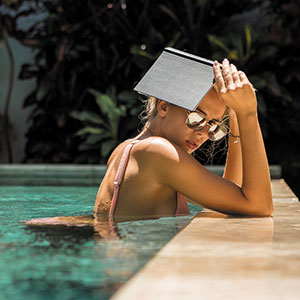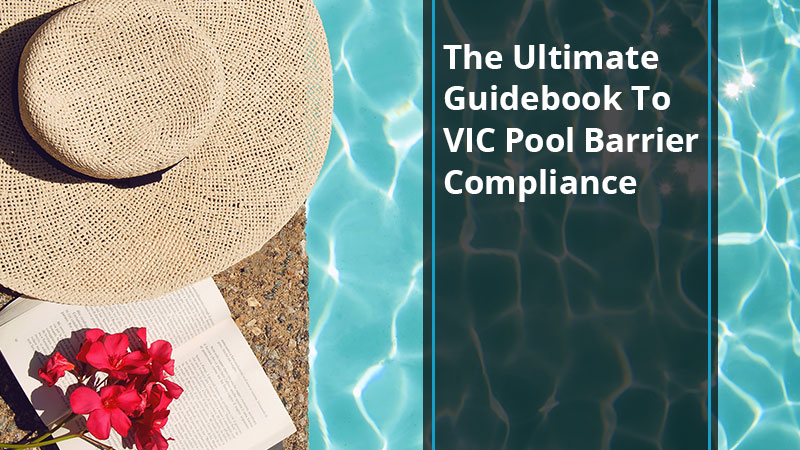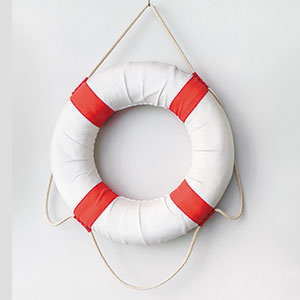Backyard cricket, barbecues, 40-degree summer heat and swimming pools – the epitome of the Australian lifestyle. With almost 2.7 million Australians living on a property with a pool, there are more than 200,700 pools owners in VIC – that’s a lot of Aussie lifestyle.
But there’s more to pool ownership than pool parties and playdates.
The Royal Life Saving Australia National Drowning Report – which you can read >here – shows since 2000, 27 children have drowned in private swimming pools and spas in Victoria. Investigations found non-compliant safety barriers were likely to have played a role in at least 20 of these cases.
Welcome to The Ultimate Guidebook To VIC Pool Barrier Compliance – where all your pool barrier compliance questions are answered – and more.
What is a pool?
VBA Victorian Building Association defines a pool >here as
- above-ground pools and spas, including relocatable and inflatable pools capable of holding more than 300 mm (30 cm) depth of water and require assembly on site.
- in-ground pools and spas
- indoor pools and spas
- bathing and wading pools capable of containing more than 300 mm (30 cm) depth of water.
Swimming pools include concrete pools, fibreglass pools, inflatable pools, temporary pools, wading pools, above ground pools and spa pools. A spa pool is classified as a swimming pool but includes any excavation, structure, or vessel in the nature of a spa pool, flotation tank, tub – though not a spa bath.
Essentially, a swimming pool, swimming pool spa, swimming bath, wading pool or paddling pool is designed as a structure to hold a minimum of 300 mm water for swimming and other water activities while adding value and lifestyle benefits to a property.
What is pool barrier compliance?
Statistics show the majority of drownings in private swimming pools occurred with children aged 0-4 years, with inadequate pool fencing a major factor contributing to these drownings.
The ultimate goal for pool compliance is to prevent these drownings while specifically focusing on pool fence and barriers.
Pool barrier compliance means your pool meets the legal pool safety requirements for your state for
- height and strength of barriers
- non-climbable zones
- gates and their latching requirements,
- preventing direct access from a building into a pool area, and
- adequate signage
Do I need to register my pool?
As the first step to preventing children drownings aged 0-4 in private swimming pools, state pool registers were set up to track and monitor each pool.
In VIC, all residential pools must be registered with their local council, which you can locate >here.
If you are a property owner.
- selling or leasing a property with a swimming pool or spa
- building a new swimming pool or spa on a property
- new fence being built around an existing swimming pool or spa
- bought a property with a pool or spa 90 days from settlement
- run a family day care, home care or at-home child care facility
- requested by your bank applying for or refinancing your home loan
- directed by council
If you are a property manager of a pool owner for any of the above situations, you need to contact the property owner and make sure they register their pool.
What happens if I don't register my pool or spa?
Failure to register your pool or spa, you may face an on-the-spot fines of $330 and penalties up to $1,652.20.
You can also receive a written notice from your council requiring you register your pool or spa.
I recently purchased a property with a pool or spa: how can I check it’s registered?
You will have to check with your local council which you can locate >here.
We don’t have children.. Do I have to register our pool and obtain a certificate of barrier compliance?
Yes. It is mandatory for al VIC property owners to apply to register any pool or spa on their property.
What is a pool safety compliance certificate?
A pool safety compliance certificate certifies a swimming pool or swimming pool spa’s fences and barriers meet the state safety requirements.
In Victoria, inspections of your pool or spa barrier and pool certificates of barrier compliance are issued by
- a registered building surveyor
- a registered building inspector (Pool Safety)
- a municipal building surveyor
This certificate needs to be renewed every 4 years.
If building surveyor or pool safety inspector finds a pool does not meet the swimming pool spa fences and barriers safety requirements, a certificate of barrier non-compliance is issued.
Depending upon the rectification work required, this certificate is valid for up to 7 days or 60 days, allowing any necessary rectification works to be completed.
Why do I need a pool safety compliance certificate?
In 2019, VIC laws required all properties with a swimming pool or spa pool to comply with the pool safety laws with valid safety certification, such as
- Form 23 certificate of barrier compliance
- Form 24 certificate of barrier non compliance, or
- relevant occupation certificate
As part of the delicious paperwork to maintain a wonderfully safe standard of living, a pool safety barrier compliance certificate is needed when
- selling or leasing a property with a swimming pool or spa
- building a new swimming pool or spa on a property
- a new fence is being built around an existing swimming pool or spa
- a property is purchased with a pool or spa 90 days from settlement
- running a family day care, home care or at-home child care facility
- requested by your bank applying for or refinancing your home loan, or
- directed by council
What does date of construction refer to?
After you apply to register your pool or spa, council determines the date of construction of your pool or spa and the applicable barrier standard which is determined by the date your pool or spa was constructed.
What is the pool safety standard?
In VIC, the requirements for pool and spa barriers and fences depend on when the pool and barriers were constructed. This is confirmed by council.
The VIC Building Authority has 5 pool safety standards — which can be read >here. They are set according to when the pool was constructed
- PART 9A BUILDING REGULATIONS 2018 AND AS 1926.1-1993 for swimming pool barriers constructed before 8 April, 1991
- AS 1926.1 – 1986 which applies to pools barriers constructed between 8 April 1991 and 31 October 1994
- AS 1926.1 – 1993 which applies to pool barriers constructed from 1 November 1994 to 30 April 2010
- AS 1926.2-2007 which applies to pool barriers constructed from 1 May 2010 to 30 April 2013
- AS 1926.1 – 2012 which applies to pool barriers constructed after 1 May 2013
These standards cover
- pool and spa fences and barriers
- NCZ non-climbable zone
- pool gate latch safety, and
- CPR Signage
What is a pool safety inspector?
In VIC, pool compliance certificates are issued by registered building surveyor or pool safety inspector
Essentially, the pool safety inspector’s role is to
- inspect the property’s pool and spa barriers, and
- issue Form 23 certificate of barrier compliance or Form 24 certificate of barrier non-compliance
What happens at a pool safety inspection?
Armed with a tape measure, your pool safety inspector completes an onsite inspection within 45 minutes. They’ll check your pool, spa and barriers are compliant and write up a detailed report is written up including photos with descriptions and explanations on rectifications. And, you don’t have to be present for the inspection – check the next FAQ.
Do I need to be present for the inspection?
As long as we have access to the pool area, you don’t need to be present – which saves you time (when we always want to save you time and money). If you’re concerned you won’t understand exactly what issues you need to address, you are emailed a detailed report including photos with descriptions and explanations on rectifications.
Read our article “Our Response To COVID-19 (coronavirus) > here – and how we maintain the health of our customers and community as our number one priority – with easy-to-use online and automated systems in addition to rigorous hygiene procedures (we do love the smell of fresh chlorine in the morning!)
What happens after the pool safety inspection?
Once the inspection is complete, your paperwork reaches you.
If your pool is
- compliant, you’ve got a gold star in pool safety and receive your Form 23 certificate of barrier compliance
- not compliant, you’ll receive your Form 24 certificate of barrier non-compliance certificate with a report for rectifications.
Once rectification work is complete, your pool safety inspector returns to inspect all over again to issue your Form 23 certificate of barrier compliance.
What if my pool is not compliant?
That’s OK. Pools are frequently not compliant because small rectifications are required.
If a pool safety inspector finds a pool does not meet the swimming pool spa fences and barriers safety requirements, a Form 24 Certificate of Barrier Non-Compliance is issued. This is valid for up to 60 days, allowing any necessary rectification works to take place and solve those pool safety issues.
If your pool is still not compliant after those 60 days have passed, by law, Council must be notified.
Rectifications may require the skills of a contractor builder. Be sure to pick the right builder who gets the job right the first time and saves you from spending money unnecessarily.
The best questions to ask your builder are
Do you know pool safety compliance?
I’m in NSW or VIC: do you understand what standard do I comply to?
Do you know how to do the rectification works to meet pool safety compliance?
What can I do for a compliant pool? Can I DIY Pool Safety?
You certainly can DIY Pool Safety – and do all the hard work before the pool safety inspector arrives.
Check
- trees and vegetation are not in the 900mm arc of the non-climbable zone
- fences are at least 1800mm high with no more than 100mm gaps in between and under fences
- gates are self-closing
- CPR sign is in the vicinity of the pool
Need more details? The Ultimate PoolSS Safety Checklist has everything you need to navigate the Pool Safety Australian Standard >here
Happy Pool Barrier Compliance!
The PoolSS DIY Inspection Checklist
Pass your Pool Safety Inspection the First Time.
Forget Government pool compliance checklists. Get compliant with our easy-to-follow PoolSS DIY Inspection Checklist. We've simplified the legal requirements so you can confidently check your pool area is safe and compliant. Keep Pool Safety simple and stress-free.
Double tap and save directly to your phone.
Or hit Download Now to save to your files and use as a real-time fillable checklist.


Disclaimer: The PoolSS DIY Inspection Checklist is a guide only, and does not constitute acknowledgment or approval of compliance or safety. If you check "No" to any of our questions, we recommend you Book Inspection with your pool safety inspector.
Got Questions? We've Got Answers.

⭐ Put The 'Fun' into Fundamentals
Learn Up
???? Pool Fences & Barriers
⛔ NCZ Non-Climbable Zone
???? ???? Pool Gate Latch
⛔ Pool Signage







